Lawmaker Says 20 Million Iranians Live In Abject Poverty
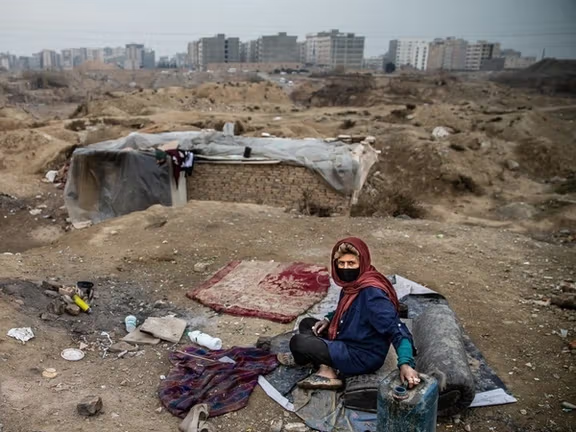
An Iranian lawmaker says about 20 million people are struggling with extreme poverty, meaning that about one-fourth of the country’s population are destitute.

An Iranian lawmaker says about 20 million people are struggling with extreme poverty, meaning that about one-fourth of the country’s population are destitute.
Behruz Mohebbi-Najmabadi, a member of parliament’s budget committee, said on Wednesday that the high number of people suffering from absolute poverty is due to the Iran’s zero economic growth in the last decade.
He noted that the Gini coefficient that is used to measure wealth or income inequality is so high in the country as some people have become extremely rich. “There are a few million bank cards in Iran whose financial transactions is over $355,000”, he said.
Commenting on the government’s decision to stop providing cheap dollars for food imports, Najmabadi said that in such a case it would become necessary to provide food coupons to poor households so they can meet their minimum needs.
On Sunday, the parliament approved the broad outline of the budget eliminating the cheap dollars for food imports without any fallback plan to help millions in poverty.
Mehdi Asgari, another lawmaker warned, “Ten million families have fallen below the poverty line” and stopping the subsidy will bring about a shock for many who would not be able to afford even “bread and cheese” while Moeineddin Saeedi, another MP, said ordinary people will never be able to eat meet.
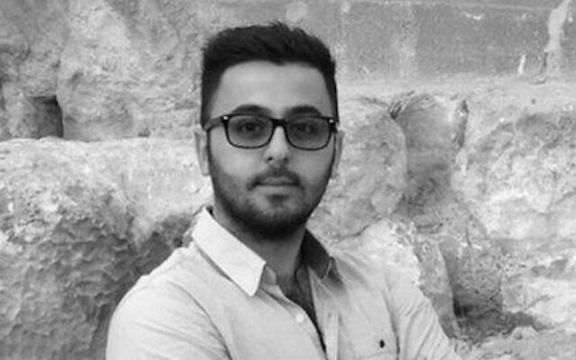
Israeli Prime Minister Naftali Bennett praised Wednesday what he called "a successful operation that prevented hostile terrorist activity against the state of Israel".
Earlier on Wednesday Israel said that it had broken up an Iranian spy ring that recruited Israeli women via social media. Four women and a man were arrested. Israeli media said they are all Jewish immigrants or descendants of immigrants from Iran. It is not clear exactly when the arrests were made, but indications are the suspects have already been interrogated.
The women agreed to photograph sensitive sites, including the United States consulate and embassy, gather intelligence and in at least two cases, to encourage their sons to join Israeli military intelligence.
A relative of one of the suspects traveled from Iran to Israel bringing cash to be handed out to the recruits. An Iranian operative going by the name of Rambod Namdar handled the spies. He maintained profiles on social media sites and pretended to be Jewish.
"The state of Israel is in an ongoing campaign with Iran. It is clear: We see never-ending efforts and attempts by the Iranian Revolutionary Guard Corps to recruit Israeli citizens," Bennett said.
“With their grave actions, those involved put themselves, their families and innocent Israeli citizens at risk, as their information was transferred to Iranian intelligence, in addition to the information that was handed over about Israeli sites and American sites in Israel, which would be used for terrorist purposes,” a senior Shin Bet official said.
What could be more worrying for the Israeli authorities is that some of the suspects seem to have known or suspected that Namdar was an Iranian operative, but agreed to cooperate for small sums of money, ranging from $900 to $5,000. Israeli officials and media did not mention any possible motives for mainly middle-aged people to have gotten involved in spying for Iran.
Israel views Iran as its greatest threat, and the two nations have been waging a shadow war for years.
Israel has repeatedly threatened to take military action against Iran to prevent it from acquiring nuclear weapons.
Iran denies it is seeking such weapons and has vowed a harsh response to any aggression.
"Have no doubt – the long arm of the security establishment will reach anyone who tries to harm Israel's security," said Bennett.
Israel's Shin Bet internal security service said the targets of the alleged spy network have been arrested and face “severe charges.”
With reporting by AP and Times of Israel
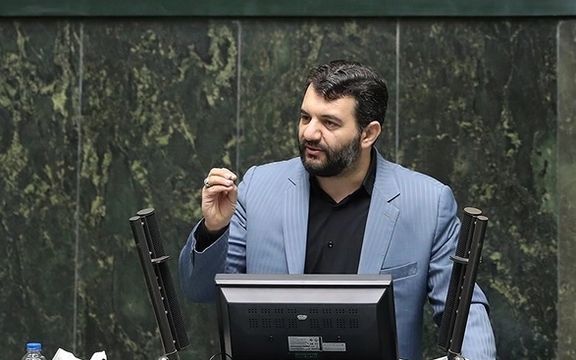
A hardliner Iranian lawmaker has accused the labor minister of treating his ministry's resources as spoils of war and giving top jobs to his friends.
Naser Mousavi Largani said Labor Minister Hojat Abdolmaleki, a former state television showman, approaches his work as if it is a television game. He further accused the minister of employing individuals whose credentials have been rejected by the intelligence organizations.
According to Rouydad24 website, Largani said that as Abdolmaleki knew he could not officially employ those individuals, he appointed them as caretakers of various departments of the labor ministry.
The website wrote that "Surprisingly, instead of supporting their colleague, other lawmakers at tried to persuade Largani to drop the issue against the labor minister.
Meanwhile another scandal broke out on Tuesday as Iranians on social media slammed the appointment of former state TV chief Abdolali Aliasgari as the head of Iran's most important petrochemical plant that reportedly provides some 20 percent of Iran's much needed hard currency. Critics said he is neither an expert in industrial management nor in the petrochemical industry. Others argued: "Who else in Iran is in charge of anything based on education or expertise?"
Regarding the labor minister, activists on social media had disclosed a letter he wrote to the country's Administrative and Employment Office asking it to disregard the standards about employment and approve the hiring of 12 of his friends who would occupy top posts at the ministry. Meanwhile, the IRGC Intelligence Organization reportedly arrested one of those hired by Abdolmaleki on charges of financial corruption, but the minister intervened and promised to fire the man.
In August, when 191 lawmakers endorsed Abdolmaleki's credentials as minister, a few lawmakers, including Largani, warned that those who voted for the showman will regret their decision soon.Largani argued that "70 million people's livelihood depends on this ministry in one way or another as it is in charge of the national Pension Fund as well as being tasked with boosting employment in Iran." He added that the ministry owns several companies including the Isfahan Steel Mill and it cannot be run by a young man who lacks the necessary experience and expertise.
Other lawmakers including Hassan Lotfi, a member of the Social Affairs Committee of the Majles, have also criticized Abdolmaleki for nepotism and "giving big jobs to small people."
In Monday's session of parliament Largani said that not only Abdolmaleki has hired people who have no relevant skills or experience, he has also fired some of the experienced managers at the labor ministry. Meanwhile, Largani criticized Abdolmaleki for saying that as labor minister he is not responsible for creating jobs. "What you are doing is bad for the president's reputation," he said.
Largani said that the Minister was breaking the law and he, as a lawmaker, will oppose him with all that he has in his power.
Nepotism and giving big jobs to friends is also an issue in Tehran Municipality. According to ILNA, on Tuesday, Mehdi Eghrarian, a member of the Tehran City Council criticized Mayor Alireza Zakani for disorderly hirings. He particularly criticized the mayor for appointing individuals from his circle of friends and family as the head of the Municipality's Welfare, Social Services and Partnerships Organization. Eghrarian said that a series of employments have taken place at the Tehran Municipality that do not conform to rules and regulations.
"We cannot constantly talk about the importance of laws and violate the same laws at the same time," he added.
Again, in the same way that hardliner lawmakers stopped the debate about the labor minister, the Chairman of the Tehran City Council, Mehdi Chamran insisted that the discussion about illegal employments at the municipality should stop at once.
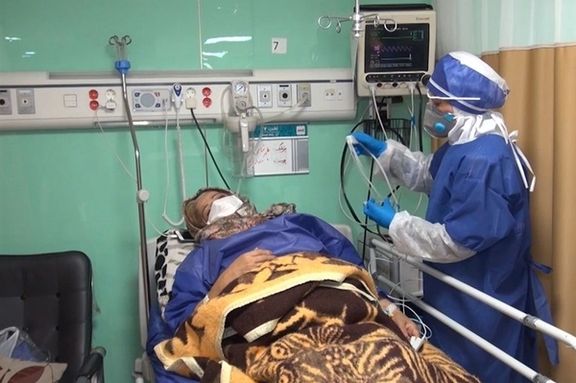
The coronavirus Omicron variant is fast spreading across Iran, with reports of Covid patient numbers rising from two to five times in some cities.
A health official in the city of Ahvaz said on Wednesday that the number of patients in the east of the city has risen five times compared with previous week and another report put the country’s average increase at 175 percent in the past three days.
Health ministry officials in provinces of Esfahan and Kerman also reported sharp rises in the number of cases, while an official from Qom province said that the number of Covid-19 patients is increasing exponentially because over 30 percent of the people in the province have not even received their first vaccine shot.
As the number of hospitalizations has jumped by 77 percent throughout the country, an official from Iran’s Covid-19 taskforce, Hamidreza Jama’ati, said the next peak will hit in the next few weeks, adding that omicron is set to become the dominant type of coronavirus in Iran.
Last week, the World Bank confirmed a $90-million loan for measures to fight the Covid-19 pandemic in Iran, saying it is "the epicenter of Covid-19 infections in the region".
Iran, which confirmed the first Omicron case on December 19, is the worst hit country in the Middle East by at least 132,000 deaths since February 2020.
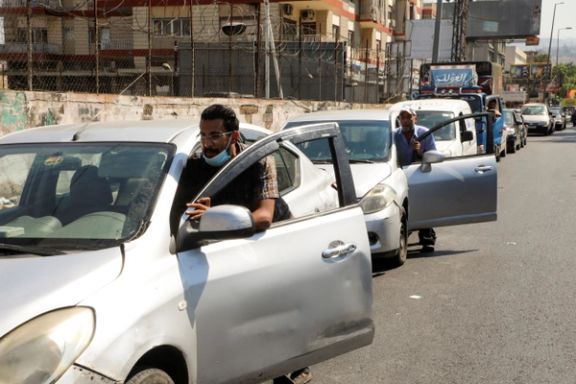
France's foreign minister said on Tuesday the United Arab Emirates would join a Saudi-French fund that aimed to provide support to the Lebanese people.
Riyadh and Paris agreed in early December to establish a common humanitarian mechanism to alleviate the suffering of the Lebanese as a first step to Saudi Arabia re-engaging with Lebanon after a diplomatic row between Beirut and the Gulf states.
"The visit by President (Emmanuel) Macron enabled the Gulf (Arab countries) to renew ties, which saw (the creation of) a joint Franco-Saudi fund to support the Lebanese, which will be helped tomorrow or the day after with a contribution from the United Arab Emirates," Jean-Yves Le Drian told a parliamentary hearing.
Le Drian gave no details on how the fund would work or how much was being pledged.
France has led international efforts to resolve the political and economic crisis in Lebanon.
But despite staking a lot of political capital on the issue for more than a year, President Emmanuel Macron has failed so far to push the country's squabbling politicians to carry out economic reforms that would unlock vital foreign aid.
Le Drian condemned efforts led by Iran-backed Hezbollah to prevent cabinet meetings and remove political blockages surrounding an investigation into the 2020 Beirut port explosion, saying this was an "unacceptable obstruction" for political objectives.
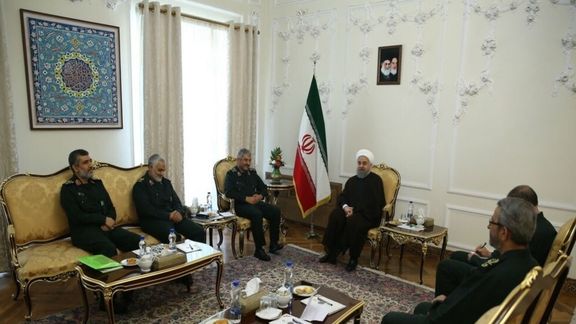
An IRGC commander has disclosed details of a "very frank and fierce meeting" with former President Hasan Rouhani in which commanders, including Ghasem Soleimani, issued a stark warning to him.
The interview with the IRGC Aerospace commander Amir-Ali Hajizadeh was published by the hardline Kayhan newspaper Wednesday and was focused on Soleimani, the slain commander of the IRGC Qods Force, who was killed in Baghdad by a US drone strike on January 3, 2020.
Hajizadeh told Kayhan that the meeting with the former president was held during his second term of presidency to warn him that the IRGC would not stay silent regarding his “transgressions.”
Hajizadeh was probably referring to Rouhani's meeting including Commander-in-Chief Mohammad-Ali Jafari and Soleimani on July 25, 2017, a few days before the confirmation of Rouhani’s re-election by Supreme Leader Ali Khamenei. Hajizadeh's account of the meeting is in stark contradiction to state media reports at the time which said Rouhani and the commanders had expressed support for each other without mention of any confrontation.
Summer of discontent
Tensions between Rouhani and the IRGC rose to new heights after his re-election on May 29, 2017. In a June 23 meeting with businessmen, Rouhani strongly criticized IRGC's business activities. "Part of the economy is controlled by an unarmed government, but we surrendered it to a government armed with guns," he said about IRGC's meddling in government affairs.
Rouhani was apparently referring to IRGC-affiliated business consortiums' taking over big companies such as the Iran Telecommunications Company in 2009 in the name of privatization during the presidency of Mahmoud Ahmadinejad. The Mobin Trust Consortium, largely owned by the IRGC Co-op Foundation, had won the tender for $7.8 billion along with two other state entities under irregular and suspicious circumstances.
In the interview with Kayhan, Hajizadeh did not make any mention of IRGC's economic activities and said the commanders offered to help Rouhani's government. "You saw in crises such as floods and earthquakes and other things the IRGC was really present," he said in the interview while accusing Rouhani of "assaulting friendly forces," meaning regime insiders.
"The Revolution, people, the ruling system, and the Leader are our redlines. Don't think you can always say these things and we will remain silent," Hajizadeh said the commanders in the meeting warned Rouhani while adding that Soleimani expressly warned Rouhani not to follow the same path as Ahmadinejad.
"Do you want to become like him? Why are you self-harming? Why are you constantly attacking us? Let's solve the problems," Soleimani told Rouhani according to Hajizadeh.
Do you want to become like Ahmadinejad?
Many allege that it was the IRGC that helped Ahmadinejad, a quite obscure figure, to climb the political ladder and capture presidency in 2005.
Relations between Ahmadinejad and the IRGC deteriorated during his second term, after he was once again helped by the Guards to overcome rivals in the disputed elections of 2009. But in 2011, Ahmadinejad publicly defied Supreme Leader Ali Khameneiover sacking his intelligence minister Heydar Moslehi. He also attacked the Guards publicly on several occasions and even dubbed them "our smuggler brothers" in reference to IRGC's massive role in hugely profitable illicit imports through ports under its direct control.
Apparently referring to Ahmadinejad and Rouhani's objection to IRGC's support of proxy forces in regional countries, Hajizadeh said under the influence of "poisonous propaganda" many questioned Soleimani's spending of Iranian money in other countries. "Why does he take our money abroad? Why, in their view, does he support a dictator? Why should we get involved in Syria anyway?" Hajizadeh said, presumably referring to Ahmadinejad and Rouhani.
In the interview, Hajizadeh also admitted that there was so much opposition to the IRGC's involvement in Iraq and Syria that the death of its forces in the early days of the conflicts had to be kept secret. "We really didn't know how to justify the deaths of the first martyrs of the wars in Iraq and Syria," he said adding that not being able to call them martyrs and burying them as such was a big problem and they had to be buried without any ceremonies.